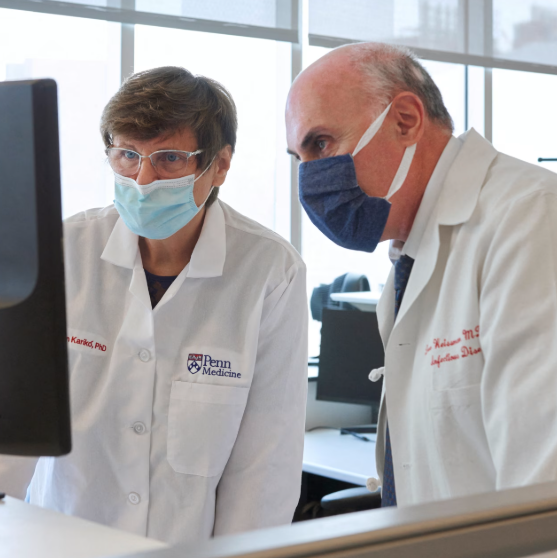mRNA technology is revolutionizing the way we approach medicine, especially in vaccine development and the treatment of genetic disorders. This innovative technology enables rapid and precise responses to emerging health challenges, offering groundbreaking possibilities for a variety of medical applications. As research continues, the potential uses for mRNA extend beyond traditional boundaries, shaping the future of healthcare.
Understanding mRNA Technology
At its core, mRNA technology allows for the use of genetic information encoded in messenger RNA (mRNA) to create precise and tailored treatments. By manufacturing mRNA sequences, scientists can instruct cells in the body to produce specific proteins that help combat diseases. This approach has led to significant breakthroughs in vaccine development, as well as the potential to treat genetic disorders by delivering synthetic mRNA to restore protein function. The ability to harness genetic material in this way is transforming how we think about medical interventions.
Why mRNA is Gaining Attention
The rise of mRNA technology has been fueled by its rapid effectiveness, particularly in vaccine development. Unlike traditional vaccine methods, which can take years to develop, mRNA vaccines can be quickly adapted to target new viral strains. This speed was evident during the global COVID-19 pandemic, where mRNA vaccines played a pivotal role in public health responses. Traditional vaccine production involves long timelines and complex processes, while mRNA technology allows for a quicker, more flexible approach, improving global readiness in the face of emerging health threats.
mRNA in Vaccine Development
mRNA technology is changing the landscape of vaccine creation. Traditional vaccines often rely on weakened or inactivated forms of a virus, while mRNA vaccines use genetic material to teach cells how to create antigens that trigger an immune response. This process ensures strong immunity without the risks associated with using live viruses. The flexibility of mRNA allows scientists to make rapid adjustments to vaccines, particularly in response to new variants of diseases. The success of COVID-19 mRNA vaccines has set a new standard, demonstrating both high efficacy and safety. In the future, we may even see combination vaccines that protect against multiple diseases at once.
Treating Genetic Disorders with mRNA
Beyond vaccines, mRNA technology is showing promise in the treatment of genetic disorders. For conditions caused by genetic mutations, synthetic mRNA can be used to replace or supplement proteins that are missing or defective. This targeted approach offers a less invasive alternative to traditional gene therapies, which often involve permanent changes to a person’s DNA. With mRNA therapy, the effects are temporary, reducing long-term risks and ethical concerns. As research progresses, mRNA has the potential to treat a wide range of genetic conditions that currently have limited treatment options, providing hope for those with rare or previously untreatable diseases.
Challenges in mRNA Technology
Despite its potential, mRNA technology faces several hurdles. One major challenge is the instability of RNA molecules, which makes delivery a complex issue. To address this, lipid nanoparticles are used to protect the mRNA and ensure it reaches the right cells in the body. These nanoparticles have proven effective, but scaling up the technology remains a significant challenge. Additionally, the regulatory landscape for mRNA therapies is still evolving, as new applications test the limits of current clinical trial frameworks. Overcoming these barriers will require ongoing collaboration between researchers, regulators, and the pharmaceutical industry.
The Future of mRNA Technology
The future of mRNA technology is filled with exciting possibilities. While its current focus is on vaccines and genetic disorders, mRNA’s potential extends to fields such as cancer treatment and regenerative medicine. In oncology, mRNA could be used to teach the immune system to identify and destroy cancer cells, offering a more precise and less damaging alternative to traditional treatments like chemotherapy. Additionally, mRNA holds promise in regenerative medicine, where it could promote tissue repair and even help restore damaged organs. As research continues, mRNA could become a key tool in treating some of the most challenging conditions in modern medicine.
mRNA’s Role in Global Health
On a global scale, mRNA technology has the power to reshape public health strategies. Its adaptability allows for rapid responses to new health threats, making it a crucial component of pandemic preparedness and vaccine distribution. By enabling faster vaccine development, mRNA platforms can help address health challenges more efficiently and equitably. This technology not only enhances the ability of healthcare systems to respond to crises but also helps close gaps in global health disparities, offering a path toward better healthcare outcomes worldwide.
Conclusion: The Promise of mRNA
As mRNA technology continues to evolve, its potential to transform medicine is immense. Already, it has revolutionized vaccine development and is making strides in treating genetic disorders. The future holds even greater possibilities, from cancer therapies to organ regeneration. With ongoing research, mRNA technology is set to redefine how we approach disease prevention and treatment, offering hope for a healthier, more connected world. The advancements made possible by mRNA are just the beginning, and as this technology continues to mature, it promises to be a cornerstone of modern medicine for years to come.

发表回复